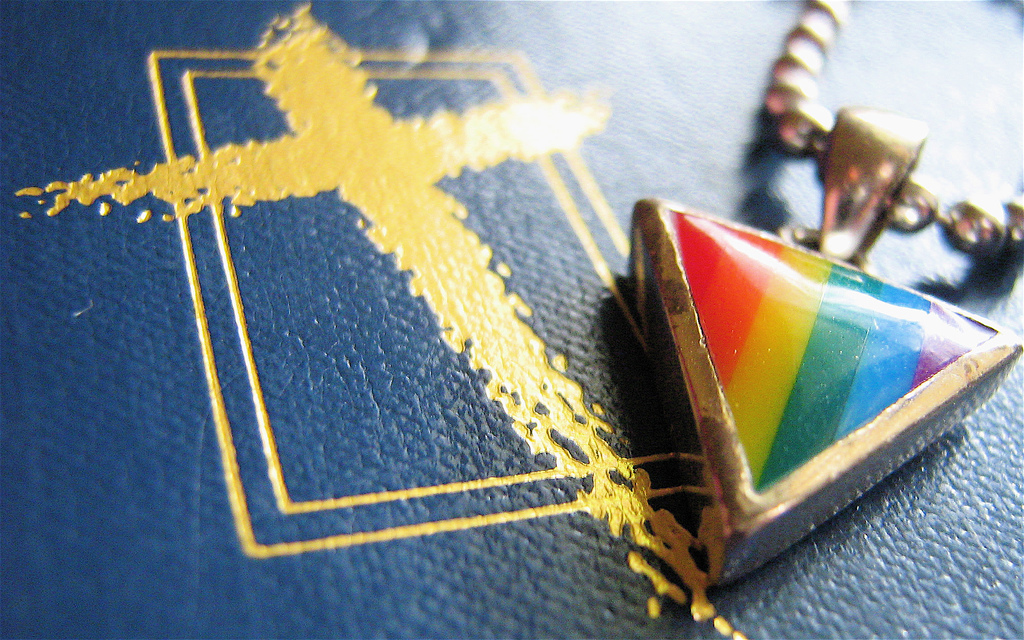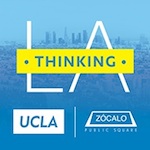
My life began in 42 A.D. Four decades after the birth of Jesus, Saint Mark established Christianity in Alexandria, creating a community of believers that would cling to tradition for generations to come. In 1968, when my family moved to the States from Egypt and settled in Santa Monica, California, my grandmother picked up a phone book, searched for any L.A.-area residents with Coptic Christian last names, and gave them a call. That’s how the first Coptic Orthodox church of Los Angeles got started. With my family at the heart of the local church, the Coptic community and its 2,000 years of tradition defined my childhood.
When it came to education, my parents sent me to Protestant Christian schools. (Although they believed that Copticism was the “true form” of Christianity, they preferred a Protestant school to secular public school.) I adored the modern Christianity I learned about there—where we sang songs in English, not Coptic; where clerics had hair gel, not long beards; where religion classes drew on emotion, not just icons. I spent summers bawling my eyes out at Christian camps, sometimes falling to my knees asking for redemption, worshipping my Lord.
Looking back, I suppose it was about halfway through high school that my faith stopped making sense. By this time, I was attending Oaks Christian High School of Westlake Village, and most of my classmates were blonde Republican WASPs. In the midst of constant worship services, chapels, and avid religious advocacy by everyone around me, I could no longer ignore my questions: How can free will exist? How can a loving God knowingly create people who won’t go to Heaven? None of my friends seemed willing to ask anything similar; they responded by telling me that I “question things too much.”
The Christian environment that once felt comforting now felt suffocating. My faith was crumbling, but I didn’t want my parents or my friends to watch it happen. As graduation approached, I saw an escape. I got admitted to Pomona College in nearby Claremont, California, which was close enough geographically to please my parents and far enough culturally to please me. Part of me wanted to discover a new set of beliefs, but mainly I just wanted a break from Jesus.
Pomona, only 64 miles from home, offered an ideologically alternate universe. When I got there I wasn’t sure what “liberal arts” meant, and I had never even heard the words “politically correct.” I was meeting people who did not believe Ronald Reagan to be the greatest president ever to have taken office; it was the Twilight Zone. With a strongly leftward-leaning student body, Pomona embodied causes that my first 18 years had mostly left out: civil rights, gay rights, women’s rights, immigrants’ rights, human rights. (It’s a wonder it’s called Left with so many rights.)
On the first day of freshman orientation, as committee leaders clustered us into small circles on the floor, I was practically ready to bow my head for a prayer and Bible reading. But that was not how introductions started. Instead, each of us was instructed to say our first name, last name and … preferred gender pronoun. “Hi, my name is Marie, and my preferred gender pronoun is she.” The words felt awkward and clunky in my mouth, my lips fumbling with the syllables. I had never met an openly gay person, had never considered my own gender identity, and now that identity was optional?
Still, I put my “heteronormative” past behind me and started working at the Women’s Union. Coming from a Middle Eastern family with rigid gender roles and an appearance-driven high school with far too many eating disorders, I had seen firsthand the need for women’s empowerment. What I hadn’t expected were events like the annual Masturbation Celebration. I don’t think I’ve heard the word “sex” even come out of my parents’ mouths (they probably hoped that if they never said it, it would cease to exist). Here was a room packed with people excited to discuss masturbation—how we enjoy it, how we perceive it, and how it influences our views of gender—followed by snacks and a vibrator raffle. I couldn’t decide whether it was cool or just ludicrous. Either way, my poor Coptic, sexually terrified brain could hardly handle it.
Staying on campus last summer to do biochemistry research introduced a new dimension to this sexually ambiguous world. My best friend and I were standing in line to choose our summer housing when we were approached by someone I had previously thought of as “that guy who walks around campus in dresses sometimes.” Apparently, he needed two more people to join his suite in order to get into the fanciest new dorms. Sure it was a little risky—we didn’t know one another—but my friend and I wanted the nice air-conditioned rooms, so we agreed. I soon grew accustomed to a suite mate who rocked both a beard and glitter stilettos. He was male-bodied (another new vocabulary word for me) but went by “she,” or “he,” or “they”—identifying with a spectrum of genders.
As someone whose father wouldn’t even let her watch The Ellen DeGeneres Show, I was confused to say the least. But over the course of the summer, our differing backgrounds proved to be grounds for fascinating conversations. Our suite was filled with the sounds of the trinity—Rihanna, Beyonce, and Shakira, musical goddesses and personal icons for the both of us. His friends from the Queer Resource Center came over for parties, and I had a wonderful discussion about Nicki Minaj’s musical representations of strength and success with a guy wearing a spandex “Sexy Police Officer” costume. These were not the life experiences my Coptic forefathers had envisioned for me. I loved it.
I also threw myself further into the realm of social justice. I had found meaning again, and a way to contribute to the greater good—building community on campus, reaching out to those who felt marginalized. And I didn’t need Jesus to do it. The ideas were exciting, the perspectives were fresh, and the people were passionate. I kept working at the Women’s Union, kept going to political talks, and kept surrounding myself with activists. I took more classes in political science and abandoned my initial plans to go into medicine.
After a while, though, I began having flashbacks. The political talks and the Women’s Union events seemed always to include the same people, the same core group of activists. I eventually started feeling like our conversations were stuck on a loop. How many times could we interrogate the notion of “privilege”? It was stirring when I was first learning it; now it started to feel stagnant. It was all too similar to my Bible studies.
The realization that zealotry is not solely for conservative religious folks startled me. In a circle that preached acceptance and tolerance, I was still seeing only one flavor of “truth.” For my classmates who grew up in San Francisco, Portland, or New York, Pomona offered a comforting blanket of familiar beliefs. Like my friends who had moved from a Christian high school to a Christian college, these new schoolmates seemed never to have had their canon of beliefs seriously challenged. With such limited insight into how other people think, they were all too willing to silence minority opinions. We always hear about the politics of religion, but now I was discovering the religion of politics.
One day, I wound up in a conversation with a coworker about reproductive rights. Her San Francisco-raised mind could not comprehend how a person could be anything but pro-choice, as if only Satanists and sociopaths could believe the opposite. I thought back to my freshman year of high school, during which two weeks of Bible class had been dedicated to explaining why abortion is murder. There are good people who cannot condone abortion because they believe it amounts to the murder of innocent children. My college friend thought that good people cannot deny a woman the right to terminate a pregnancy, because it amounts to an intrusion by the state into a person’s body. Both parties find their answers obvious—but if the answer were so morally apparent, Americans wouldn’t still be bitterly debating the issue. We are not on the same page. We’re not even reading the same book.
While I loved my political science classes, I couldn’t help but notice that many of my professors—actually, probably my favorite professors—had strong left-leaning political agendas. Their ideas were often stimulating and challenging, but I craved an ideology that was less absolute. My past had never presented me with a middle ground; the present wasn’t doing so either.
I am now starting my third year at Pomona. For all the time and emotional effort I’ve spent analyzing my polarized beliefs, I’m still unsure how to reconcile my past and my present. It often feels like having two best friends who don’t know each other and wouldn’t get along if they did. Fragments of me lie on the left, some on the right, and some on a different plane altogether. So here I stand in limbo, still trying to live out the Gospel, whatever gospel that may be. Caught among radical faiths, I’m searching for a truth that leaves room for me to breathe. And I like to believe—I have faith—that it’s somewhere to be found.





Send A Letter To the Editors